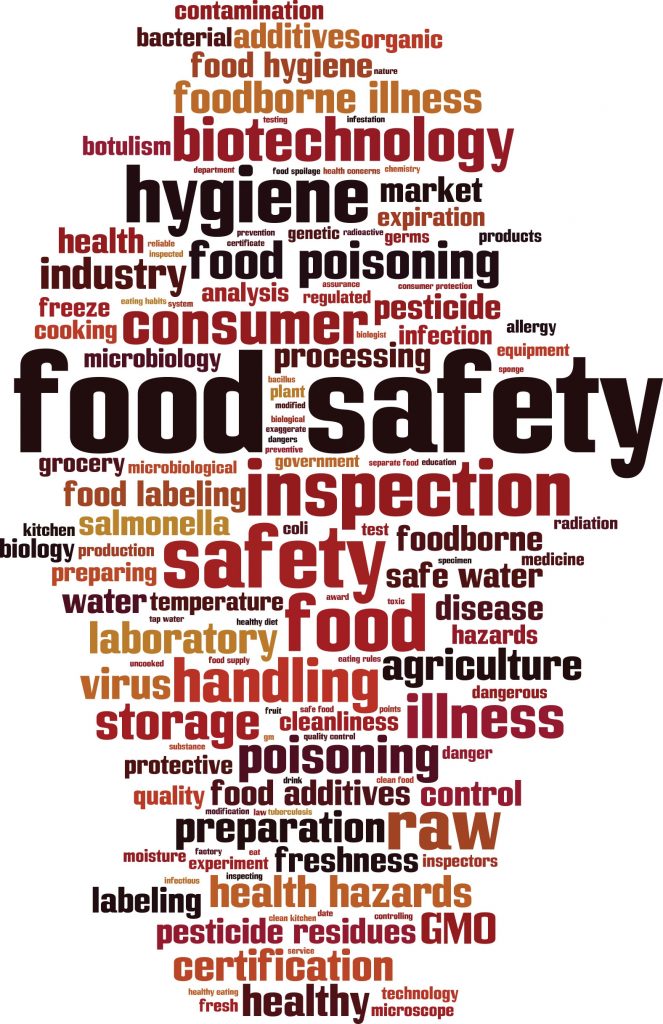
The Final Proof: Food safety
September 14, 2017
By
Jane Dummer
From recalls to FSMA, food safety is under the looking glass. Let’s take a look at the latest in revolutionary technology that ensure food’s safe.
 Photo: Fotolia
Photo: FotoliaWith consumers’ changing eating habits, the implementation of the U.S. Food Safety Modernization Act (FSMA) and the number of recalls over the past few years including the most recent one for wheat flour, the baking industry is looking at food safety through a magnifying lens to address these changes.
In the baking industry, dust-borne pathogens including salmonella, e. coli and listeria, have always been a concern. The California almond community conducted research over a nine-year period and learned there is a low level presence of salmonella in the soil across the California almond growing region, regardless of location, soil type, growing practices or age of orchard. In 2007, The California almond industry implemented a regulation requiring pasteurization for California almonds shipped within North America. Traditional methods include blanching, roasting, and steaming. The industry decided to pasteurize almonds as they felt they had a responsibility to provide a safe, pathogen-free, nutritious food product, reported the Almond Board of California in “The “Raw” Deal: Facts about Almond Pasteurization” (www.almonds.com/consumers/about-almonds/food-safety).
As a seasoned, international food safety expert, Irwin Pronk, principal advisor at Toronto area based-HACCP by Design, says “With more raw baking ingredients in granola bars and energy bites, the industry needs to gather, conduct research and identify the best systems to guarantee a 5-log reduction among the potential pathogens. Then be able to validate the best practices for ingredients including nuts, grains and seeds. We’re in a gap based on a few factors, therefore, the baking industry needs to model how the almond industry responded after the salmonella outbreaks. The idea is to identify any opportunity for food safety improvements along the entire supply chain to reduce the risk of contamination that will equal overall total improvements. Then recommend reduction processes that can be validated but don’t change the taste, nutrition and functionality of common baking components, including gluten.”
Food safety was a popular topic at the Institute of Food Technology (IFT) Annual Meeting & Food Expo I attended in Las Vegas at the end of June. At the meeting I had the opportunity to meet Robert Wong, president and COO of Agri-Neo. Wong’s company developed Neo-Pure, a revolutionary organic, non-thermal food safety solution that is validated to address the risk of pathogens and unwanted microbes in seeds, grains, nuts, and sprouted foods without impacting the taste, gluten structure or nutritional value of the product. Wong explains: “It’s derived from plants and applied directly onto foods as a liquid solution. After destroying pathogens like salmonella and e. coli o121 it completely biodegrades, so food is kept raw, organic, and viable. Neo-Pure is a preventative pathogen control that helps companies meet FSMA’s risk assessment requirements, and improves food safety, which diminishes the likelihood of recalls.”
“The baking industry faces the same safety concerns as the rest of the food industry,” says Wong. “And while bakers have traditionally utilized heat as their pathogen kill step, changes in food trends driven by health-conscious consumers are forcing the industry to look at new methods of pathogen control. This includes the increasing use of ingredients in their raw form. For example, walnuts sprinkled on the top of a cake are added after the baking process, and from a food safety perspective, they never pass through a heat step. At Agri-Neo, we are actively expanding the types of products and ingredients Neo-Pure is validated on for pathogen control and this includes wheat flour.” Agri-Neo’s base system starts under $500k.
Dianne Donaldson, product development manager at Everspring Farms (a BRC certified company) located in Seaforth, Ont., selected the Neo-Pure system to lower the risk of having a pathogen present in the grain and seed products they produce. Donaldson explains: “The system adapts to a wide variety of grains and seeds which was important for us since we produce over 20 different sprouted grains and seeds. It’s important that this system can be used for organically certified products and the process doesn’t alter the sensory profile of the seed or grain. It was also a lower initial capital cost compared to alternative microbial reduction options. Not only does this improve our food safety system, it has also been a great benefit for our customers in assuring them they are sourcing the best quality ingredients.”
Jane Dummer, RD (www.janedummer.com), known as the Pod to Plate Food Consultant, collaborates and partners with the food and nutrition industry across North America.
Print this page
Leave a Reply